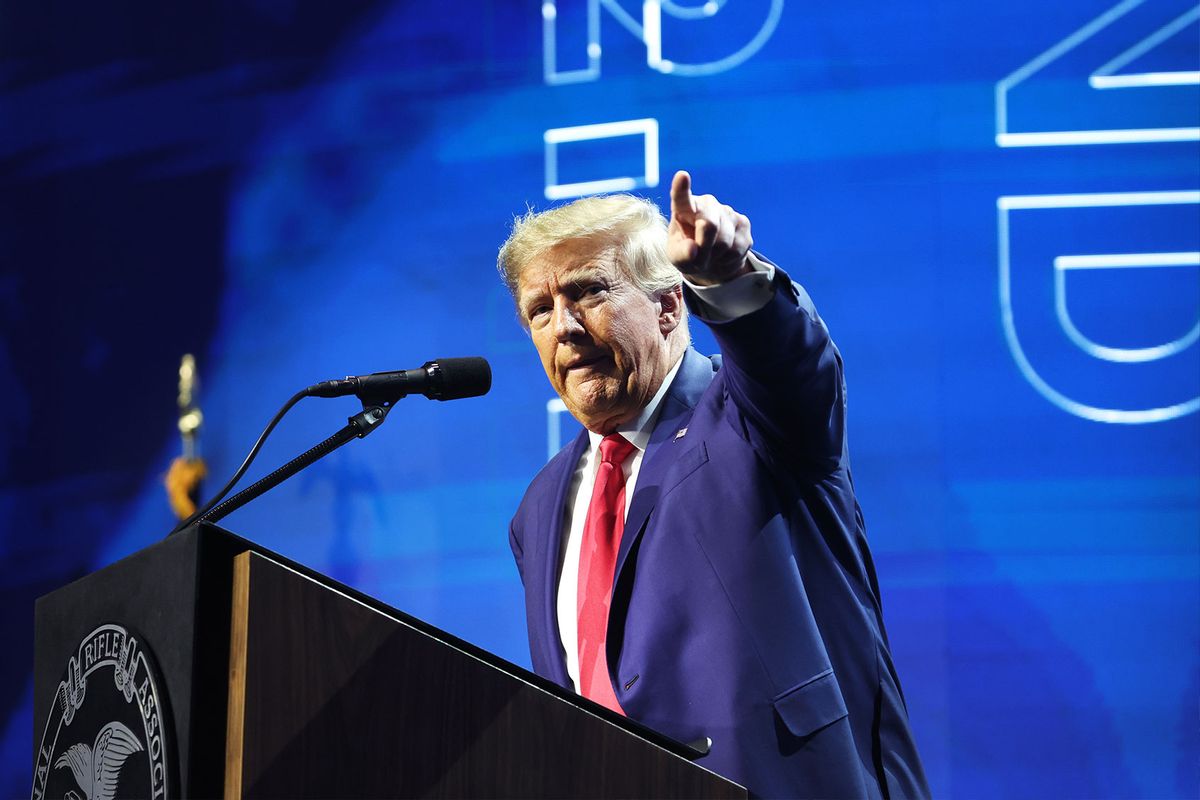On Tuesday, former President Donald Trump announced on his campaign site that, if he's elected in 2024, on his first day back in the White House he'd issue an executive order ending birthright citizenship — an action that would be unconstitutional and likely face an immediate challenge in the courts.
"As part of my plan to secure the border, on Day One of my new term in office, I will sign an executive order making clear to federal agencies that under the correct interpretation of the law, going forward, the future children of illegal aliens will not receive automatic U.S. citizenship," Trump said in a statement, wrongly asserting that current law was being interpreted incorrectly.
In addition to claiming without evidence that his executive action would "secure the border," Trump's campaign website also stated that the order would stop so-called birth tourism — a practice that is so rare it is often labeled as a myth.
The announcement by Trump came during the same week as an important legal anniversary directly related to the topic of birthright citizenship. It was this week 125 years ago, in the court case United States v. Wong Kim Ark, that the Supreme Court first recognized that the 14th Amendment established the legal right of people born in the country to be citizens.
The idea that Trump could change that precedent through an executive order (or anything short of a constitutional amendment) borders on the absurd. The amendment's first sentence says:
All persons born or naturalized in the United States, and subject to the jurisdiction thereof, are citizens of the United States and of the state wherein they reside.
Legal experts have suggested that, rather than being a serious promise to alter law, Trump's call to end birthright citizenship is simply a dog whistle to appeal to xenophobic and bigoted far right members of his base of support.
"I think it's pretty clear that, for political purposes, he thinks that this kind of announcement will appeal to his base," said Stephen Yale-Loehr, an immigration law professor at Cornell University, speaking to CBS News on the matter. "It shows that he has anti-immigration credentials. And most of his voters don't know or don't care about whether such an executive order would be legal."
Trump set off a firestorm of anger when he made a similar promise weeks before the 2018 midterms, stating in an interview with Axios that he'd soon make an executive order ending birthright citizenship, and that it'd be easy for him to do so in a purportedly legal way.
"It was always told to me that you needed a constitutional amendment. Guess what? You don't," Trump said incorrectly.
If Trump's theory was true, it would render any section or amendment of the Constitution pointless, as presidents in the future could nullify it by decree.
Ultimately, Trump didn't follow through on his pledge.
Fifteen professors from prestigious law schools throughout the U.S. blasted the former president in 2018 for suggesting he could ignore the rule of law and legal precedent, noting that there was "no serious scholarly debate about whether a president can, through executive action, contradict the Supreme Court's long-standing and consistent interpretation of the Citizenship Clause of the 14th Amendment."
Civil and immigration rights groups also condemned Trump's bigotry. Mijente, a Latinx rights organization, described his calls for ending birthright citizenship as a "barely-veiled assault on the rights of immigrants and other communities of color" that sought to rile up his base of voters before the 2018 midterms.
"[Trump] is using us for his political purposes right now — as scapegoats, as punching bags, as bogeymen and bogeywomen, as a collection of old stereotypes to be exploited for the benefit of sowing division and hate," the group said.



Shares